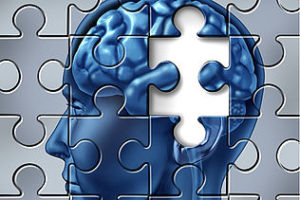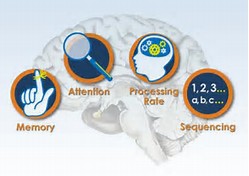The Missing Piece: Auditory Processing and Learning Difficulties! The good news is it can be treated.
by Dr. Debbie Davis, Au.D on May 13, 2017
Auditory Processing Disorder affects the way the brain interprets the information the ear hears. It is estimated that 2-3% of children in Canada are affected by Auditory Processing Disorder. With approximately 1 in 30 children impacted by APD, there could be one child in every classroom that is struggling with understanding the teacher. Despite normal hearing, children will have difficulties with listening in the classroom “when the brain can’t hear”. Some APD behaviours are related to difficulty listening to the spoken message, as in difficulty with excessively noisy situations, or with directions, tonality or speed of speech. Auditory processing difficulties can happen to any of us even with normal processing. Who doesn’t struggle just a little bit more when listening to an Englishman’s accent? The difference here is that someone with APD will struggle even if that speaker doesn’t have an accent. Therefore when the message is degraded it will require a lot of effort and sometimes there is not enough mental energy remaining to remember what is heard. This would mean one would have difficulty with auditory memory. That’s where brief, clear, and simple instructions can make it easier for children to understand and follow instructions. If the instructions become lengthier, with several steps, pieces are often missed or forgotten. Children may often have a language delay and/or reading difficulties because of the impact that APD can have on phonemic awareness. In layman’s terms, phonemic awareness is hearing, discriminating and manipulating sounds in language. As a matter of fact some countries have found 94% of children with APD also had language impairment or reading disorder. Some other APD behaviours may be mistaken as attention deficit. It is very important to differentiate between auditory processing disorder and attention deficit disorder given that short attention spans can be noted with both and symptoms may be similar between the two. When much of a student’s instruction is auditory based it can be frustrating and overwhelming for the them. This may lead to inattention and that’s why the behaviour could be similar to those with attention deficit. That being said, difficulties with inattention, impulsivity and hyperactivity and fidgety nature will tend to rank as more pronounced in ADD/ADHD than those diagnosed with APD.
Individual causal factors of APD are unknown. However, as Auditory Processing Disorder may be hereditary the learning style of the child may be similar to that of one of their parents. Additionally, there may be other environmental factors that cause APD and those may be birth related issues, middle ear troubles in infancy or early childhood and neuromaturational delay, The good news is that before this disorder ends up secondarily impacting psychosocial well being something can be done. APD can be treated before the child gets frustrated and experiences low self-esteem, anxiety or behavioural problems. With therapy, we can improve processing efficiency.
Half of all APD profiles have a weak ear called Amblyaudia. This Amblyaudia can be likened to the weak eye or lazy eye for which Amblyopia is diagnosed. Within a matter of one to two months the two ears can be trained to work together optimally. In many cases where SLP therapy or LRT help has made improvements, but still falls short of same age peer abilities, APD may be that missing piece of the puzzle. If any of this sounds similar to a child you know, consider requesting an audiological evaluation with screening for Auditory Processing Disorder. Children as young as 3 ½ years of age can begin to be assessed for Auditory skill development. Those that are considered “high risk” could be monitored and by 5 years of age the ears can be separated out during testing to determine if Amblyaudia may be a factor.
By 7 years of age a formal diagnosis can be made by the audiologist when an educational team is involved.
We Do It Better!
2190 Victoria Ave E.
Regina, Saskatchewan
S4N 7B9
306.359.3277 ph





